Comics
Huey Smith and the Clowns, “Popeye”
The musician's Wikipedia page.
Posted By: Paul - Fri Mar 29, 2024 -
Comments (1)
Category: Music, Comics, 1960s, Dance
Miss Moon Maid of 1965
More fotos and text at the link.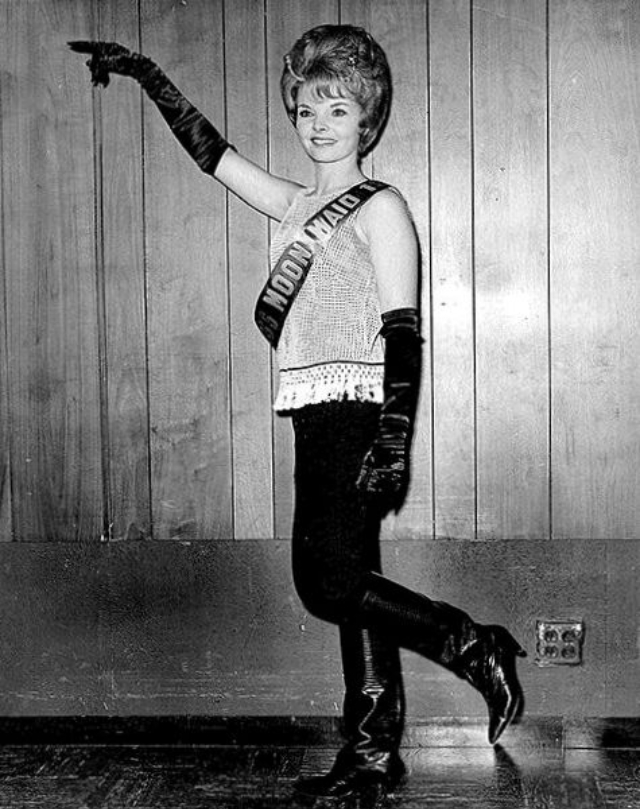
Posted By: Paul - Sat Mar 09, 2024 -
Comments (0)
Category: Awards, Prizes, Competitions and Contests, Beauty, Ugliness and Other Aesthetic Issues, Comics, Space Travel, 1960s
“The Family Circus” Goes to War
No one likes to make fun of THE FAMILY CIRCUS more than I. In fact, if you go beyond the jump, you'll see a couple of samples of the re-captioned cartoons I frequently post on Facebook.But I have to say that I have new admiration for Bil Keane after reading about his somewhat gutsy and altruistic trip to Vietnam.

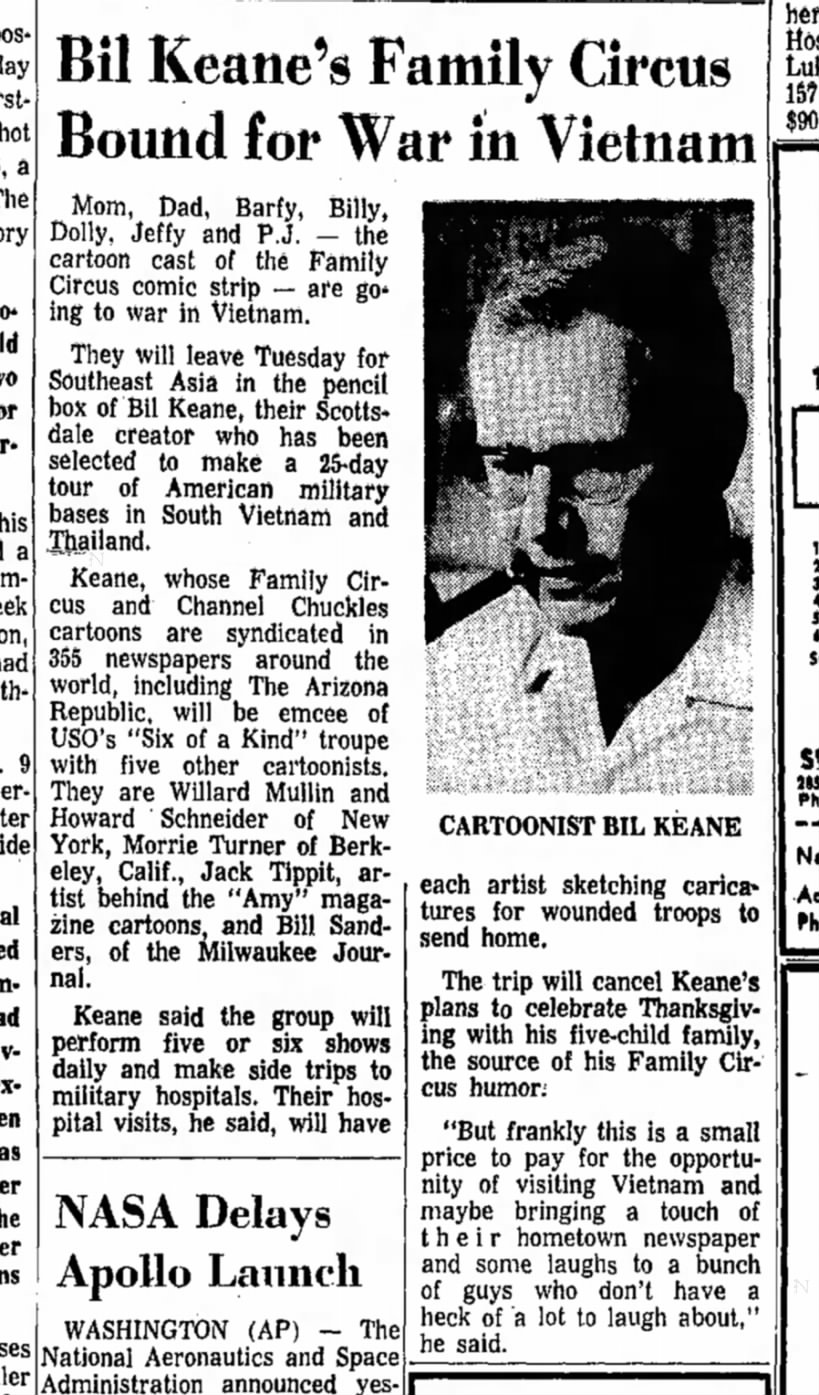

More in extended >>
Posted By: Paul - Mon Jan 22, 2024 -
Comments (2)
Category: War, Comics, 1960s, Asia
Wife Gets Smart, Makes Husband Happy
In 1941, Safeway began including comic strips in their newspaper ads. The comics continued throughout World War II until 1947.Nat Gertler collected these comic-strip ads together in a book titled Wife Gets Smart, Makes Husband Happy. It's a collection WUvies might enjoy since it offers a bizarro window onto the concerns of mid-20th century American families.
One theme in particular emerges repeatedly: wives desperately trying to manage the moods of their husbands (the husbands being either cranky, obnoxious, clueless, or lethargic). Somehow the wives always manage to save the marriage by shopping at Safeway.
More info: AboutComics.com, Amazon
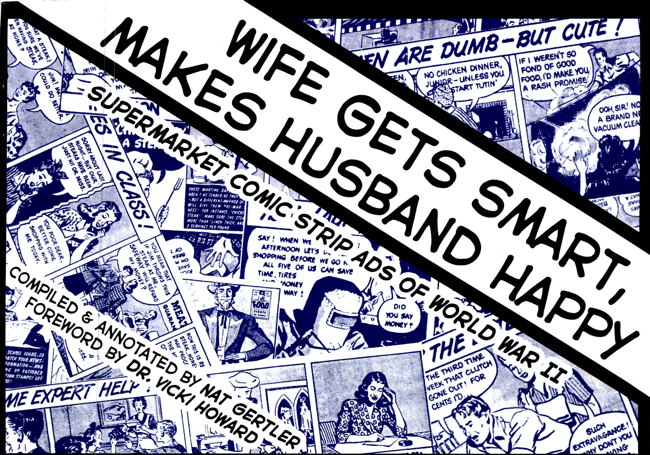


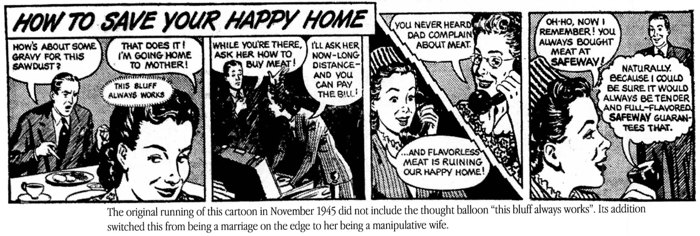

Posted By: Alex - Sat Jul 08, 2023 -
Comments (0)
Category: Advertising, Comics, Books, 1940s
A Comic That Scared the Senate
The infamous Senate Hearings on horror comics in the 1950s are well known. And in fact, you can read the whole 316-page transcript here.I thought it might be fun to see one of the actual stories that triggered the politicians. It follows after the next two images.
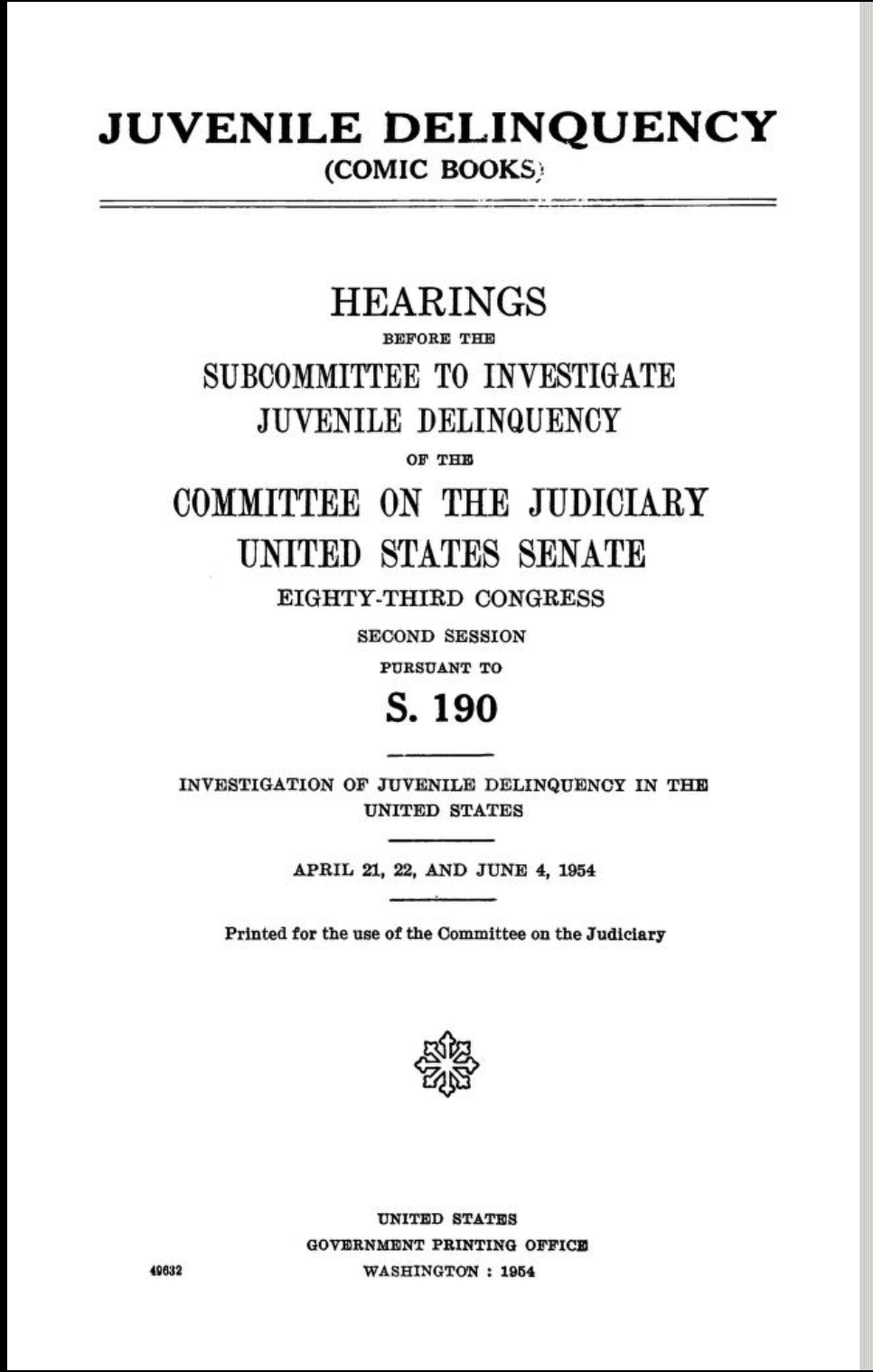
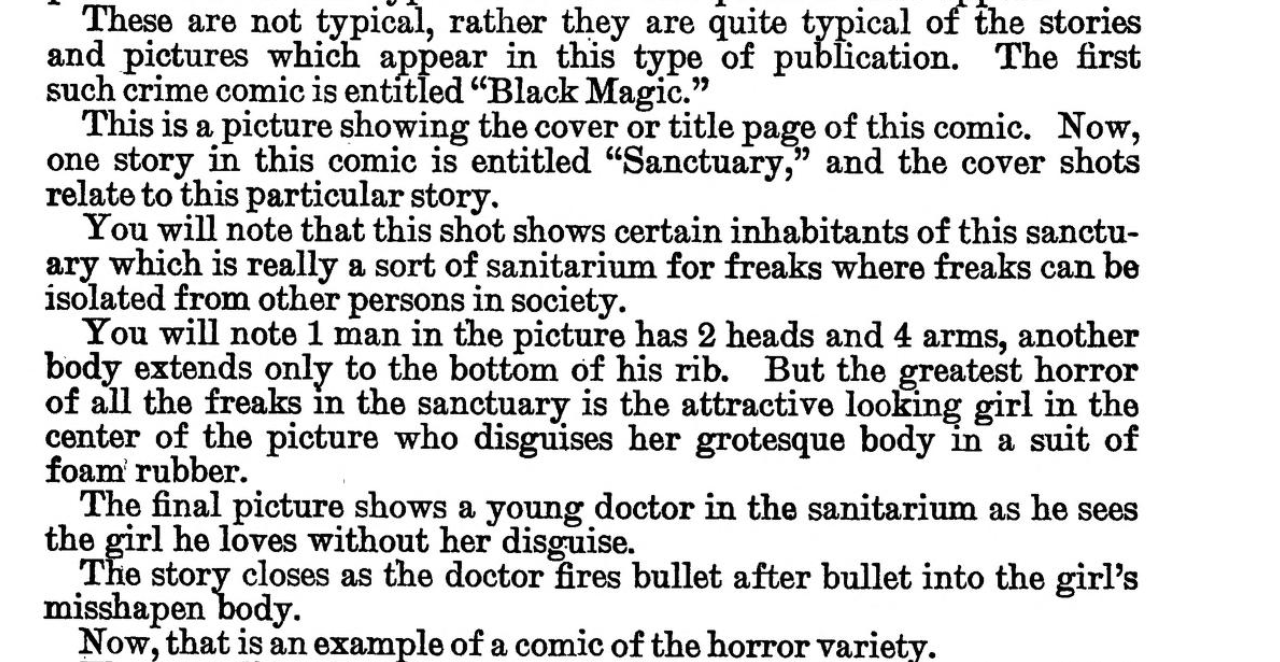
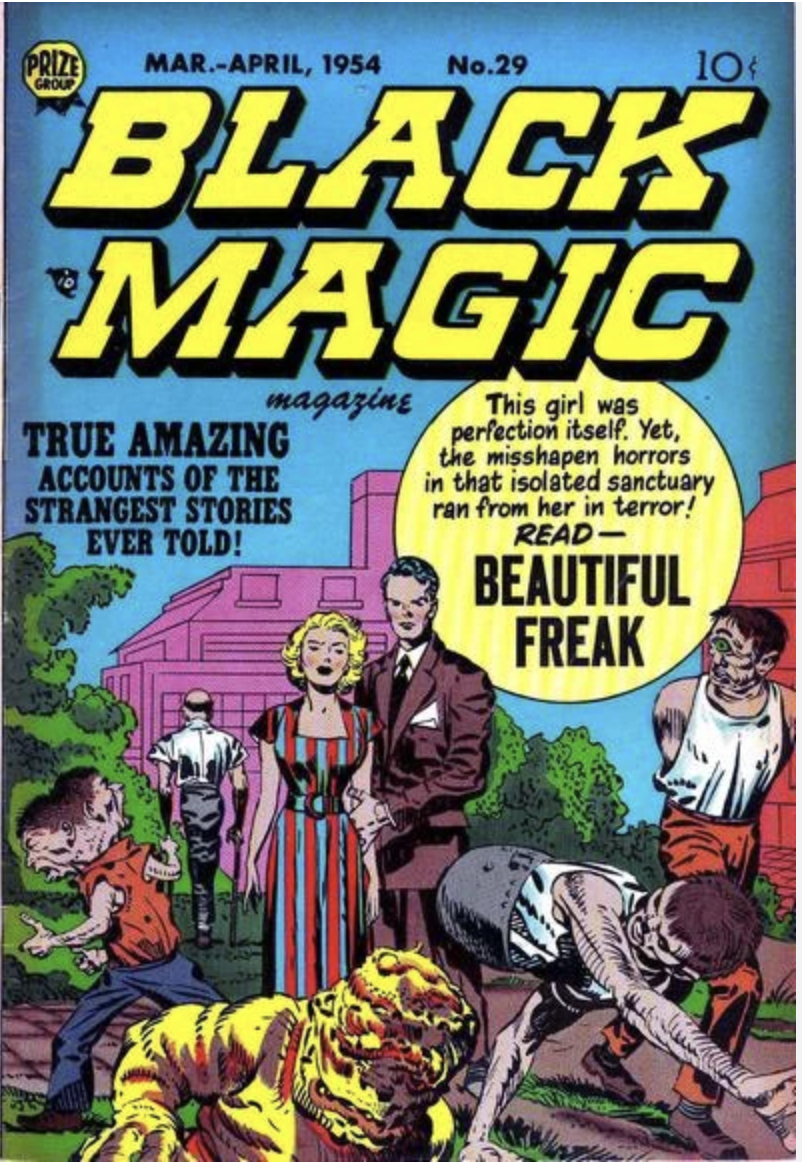
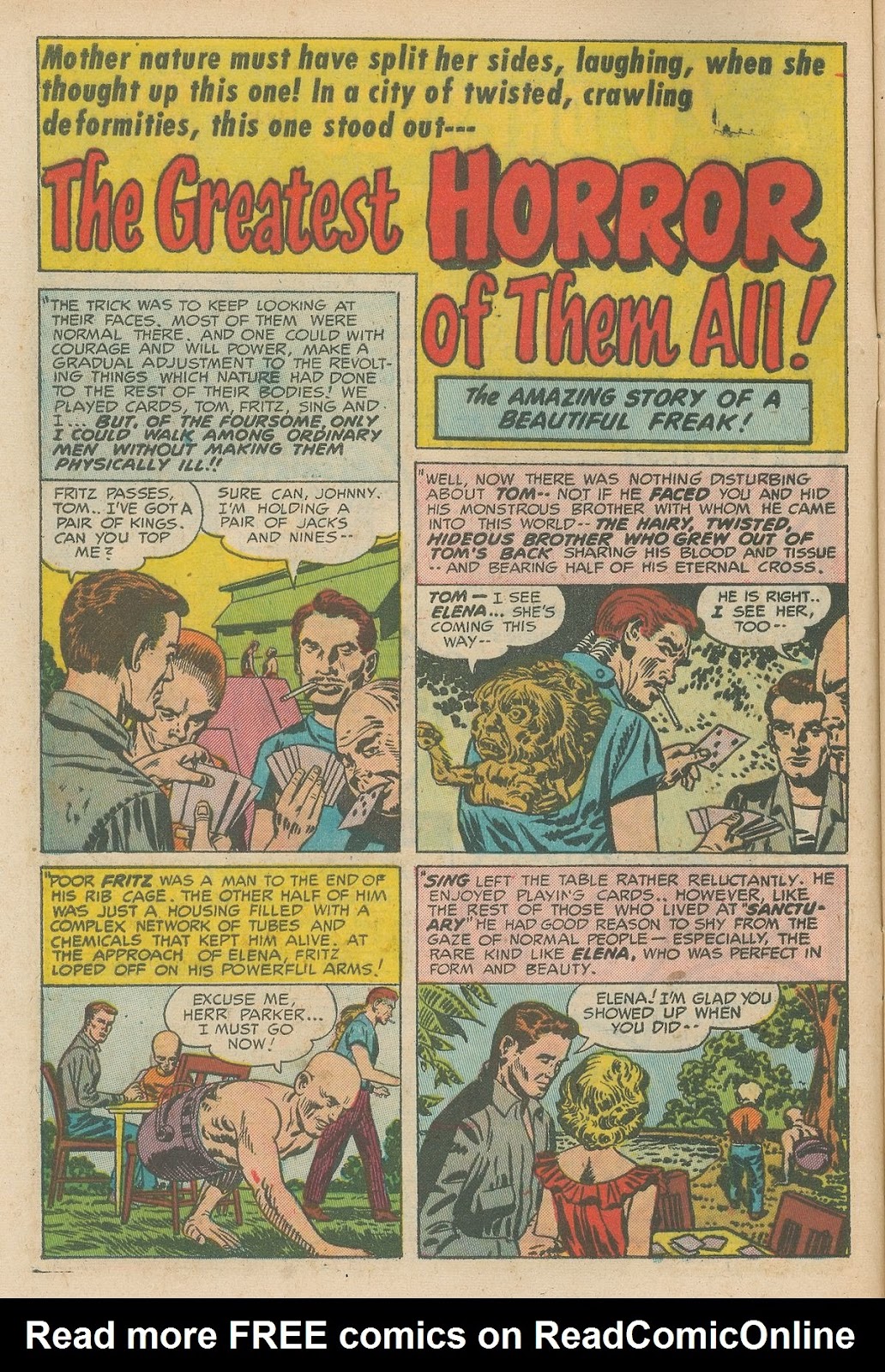
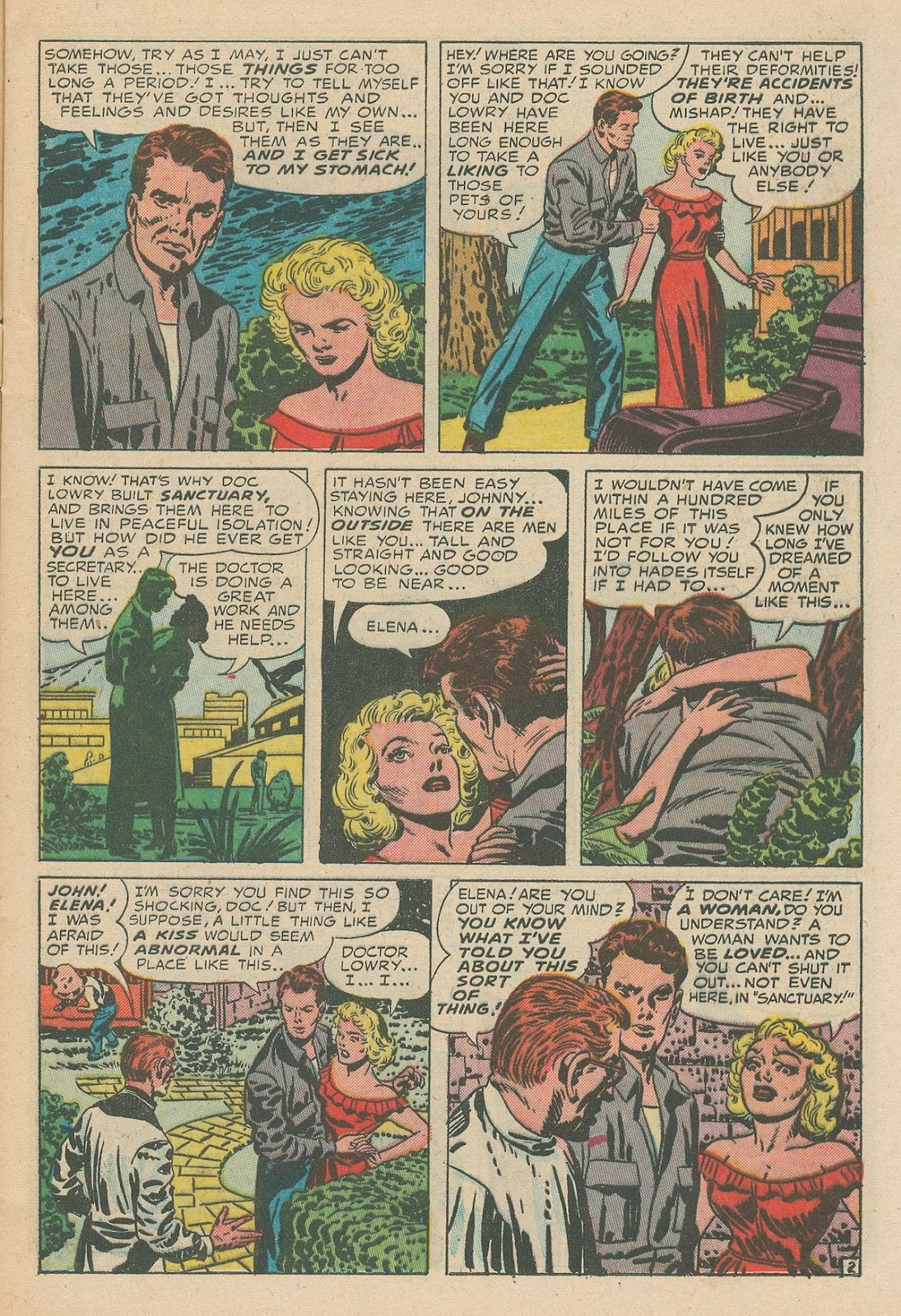
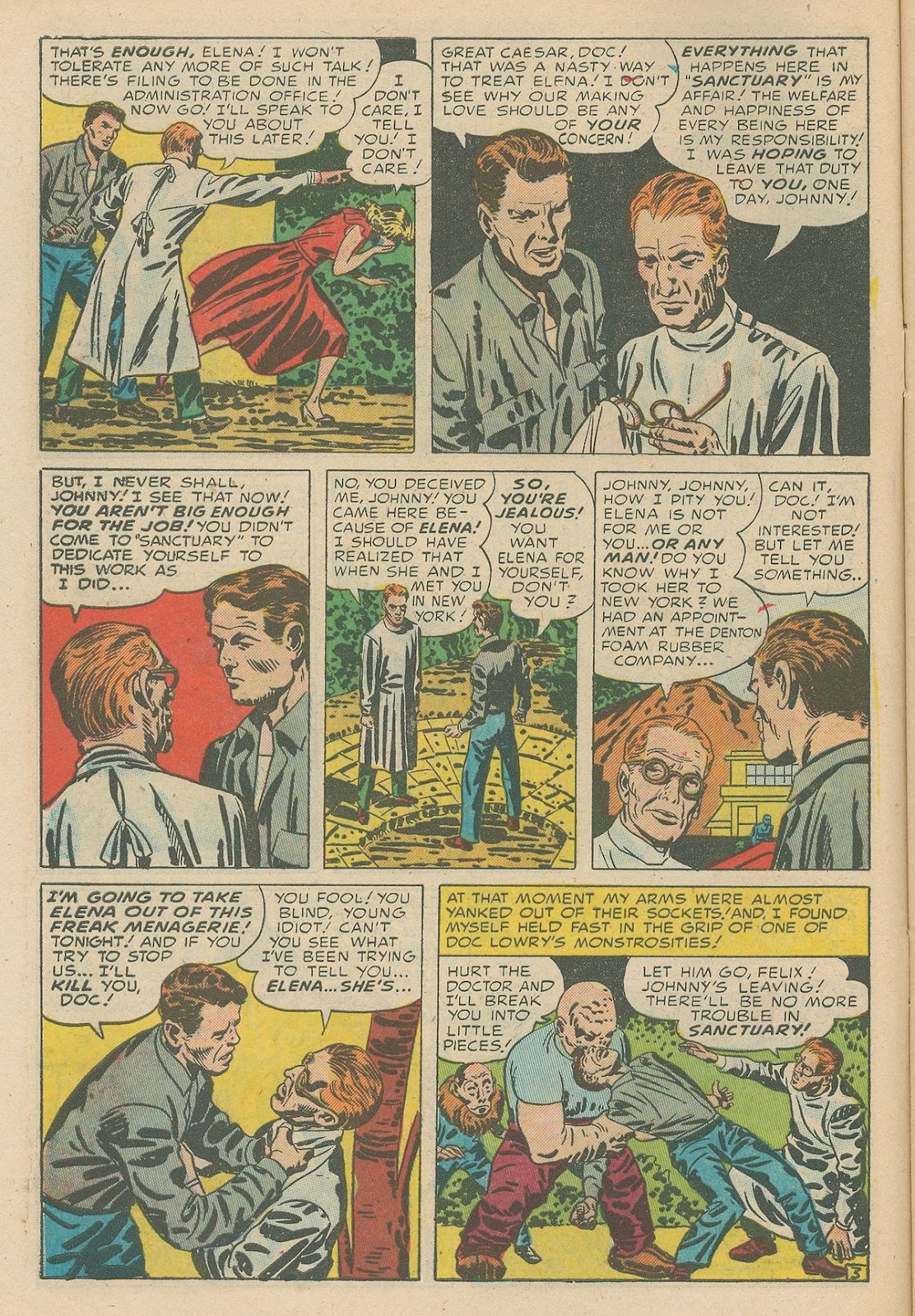
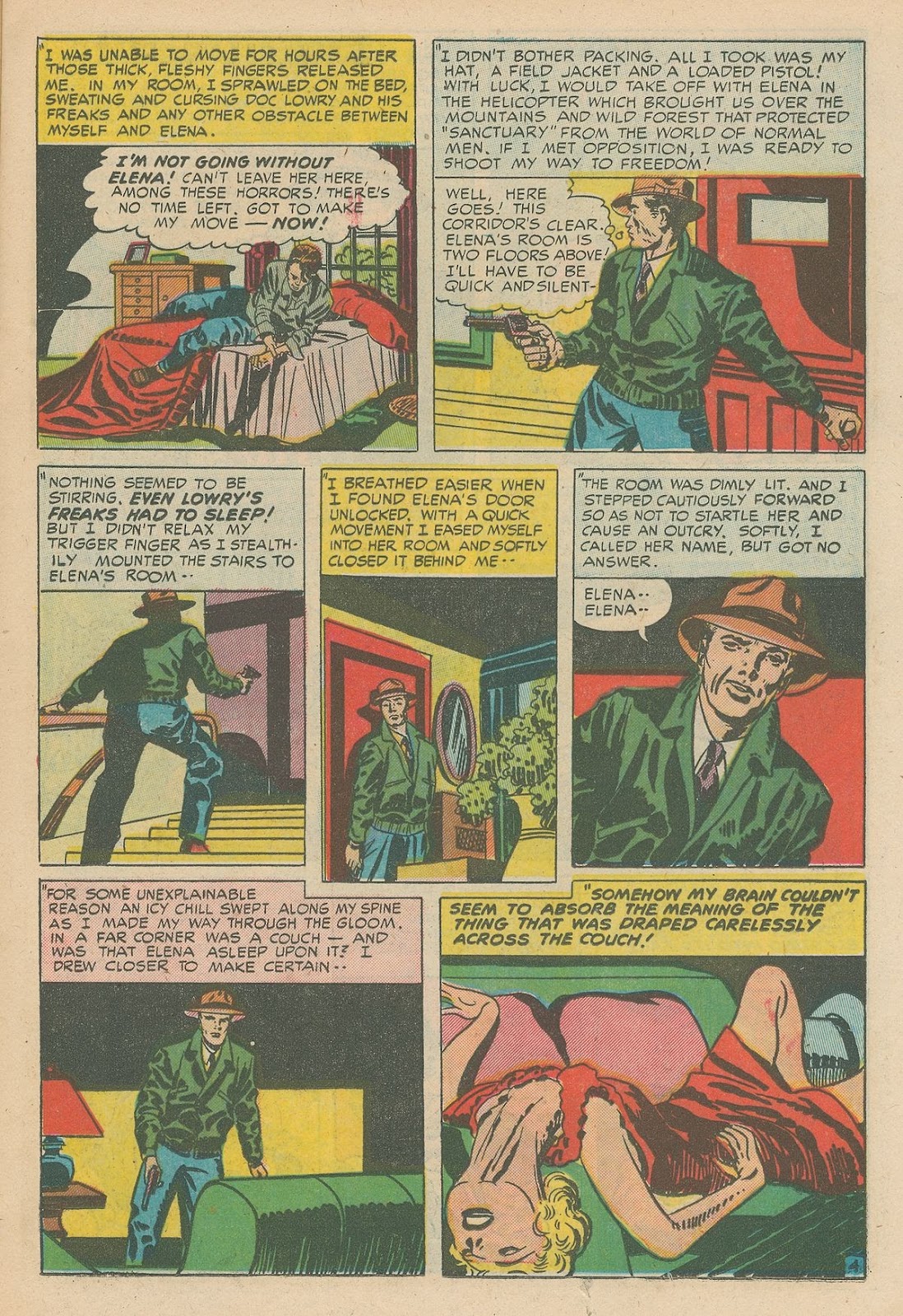
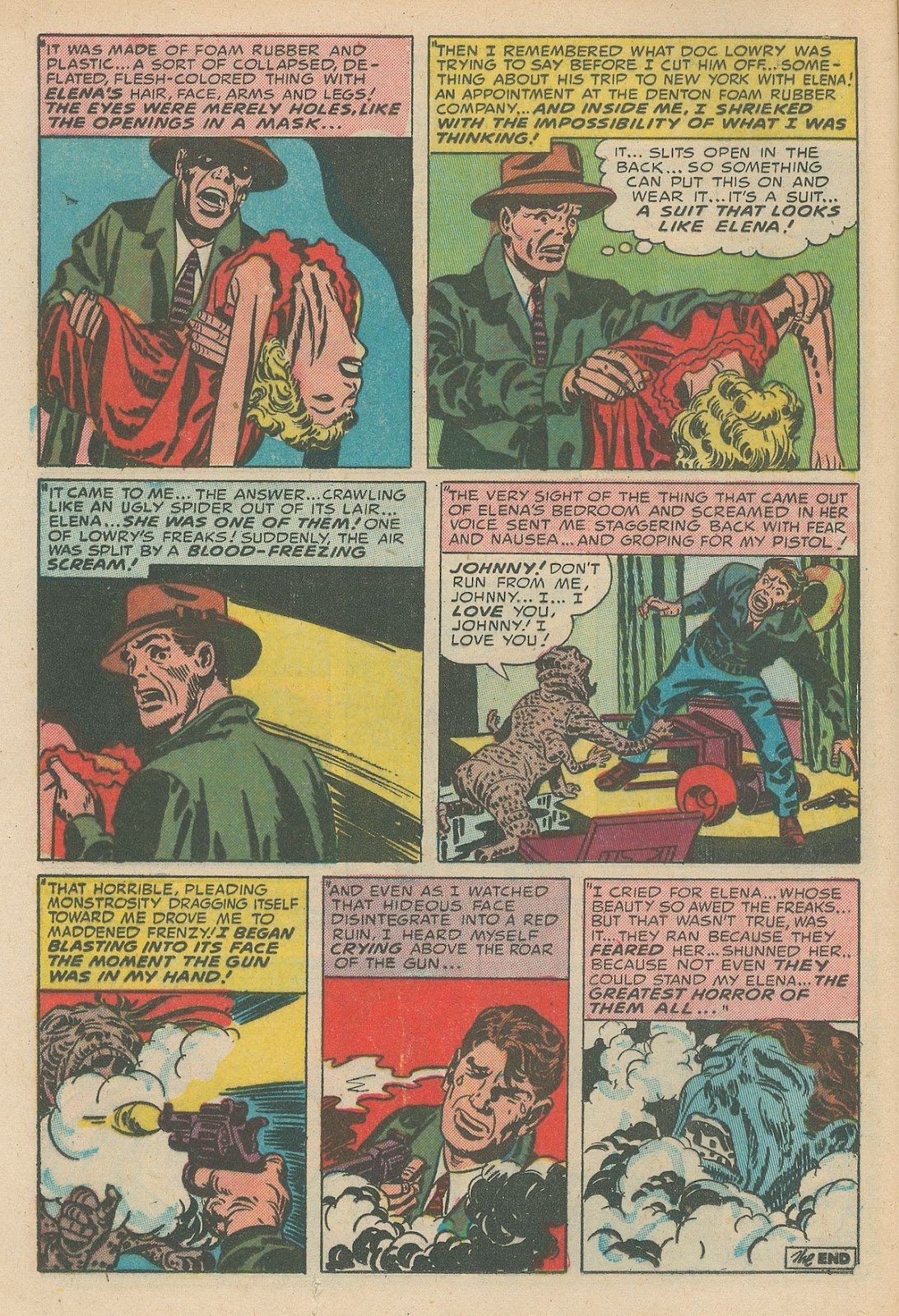
Posted By: Paul - Fri May 19, 2023 -
Comments (2)
Category: Horror, Politics, Scandals and Controversies, Comics, Children, 1950s
Follies of the Madmen #549
Posted By: Paul - Tue Dec 13, 2022 -
Comments (0)
Category: Family, Newspapers, Restaurants, Advertising, Comics, Junk Food, 1960s
Using comic strips to forecast the stock market
Frederick N. Goldsmith published a successful stock-market newsletter from 1916 to 1948, when he came under investigation by the New York Attorney General for telling his subscribers that his market advice was based on "inside information."Goldsmith, however, had an unusual defense. He revealed that the primary source of his inside information was the comic strip "Bringing Up Father." Goldsmith believed that the comic strip provided clues, in code, about the direction of the market. The clues had been placed there by "big insiders." This was apparently their way of communicating with each other. But Goldsmith believed he had cracked the code. Details from The Manipulators (1966) by Leslie Gould:
In one episode, explained Goldsmith, Jiggs was at the theater and remarked: "The intermissions are the only good thing about this show." Goldsmith interpreted that as a sure-fire tip to buy Mission Oil, which he passed on to his market letter subscribers. It went up fifteen points the next day.
When questioned, McManus (author of the comic-strip) insisted he knew nothing about the stock market and pointed out that he prepared his strip nine weeks ahead of publication. He also noted, "What would I be doing with cartoons if I were so hot on the stock market?"
Having learned the truth, the AG could have dropped the case, but he decided to shut down Goldsmith anyway for misleading his subscribers.
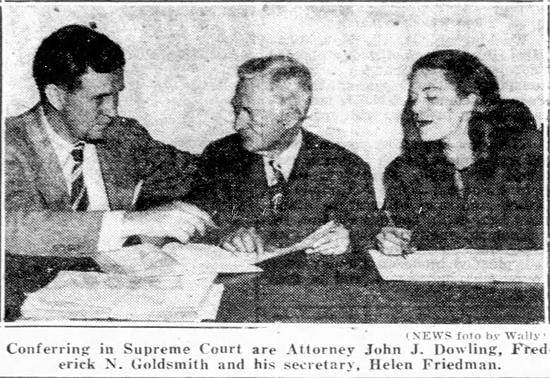
NY Daily News - Nov 18, 1948
The problem that the AG faced at the trial, however, was that Goldsmith's predictions had actually been pretty good and had served his subscribers well. In fact, many of his subscribers came to his defense during the trial. Nevertheless, the judge shut down Goldsmith's business. More details from The Manipulators:
The defendant. . . was engaged in the business of writing and distributing a market letter to the public which attempted to forecast and predict future prices of securities and commodities.
Subscribers were led to believe that the defendant used statistics, financial reports and charts in preparing. . . prognostications of future price movements. The letter was also so worded as to imply that the defendant had sources of special and secret information concerning stock movements. . .
The subscribers to the defendant's daily market letter had the right to assume that the defendant possessed a superior knowledge of the stock market, that whatever information he had came from living persons and recognized sources and not as a result of interpretations of comic strips. When he failed to inform his subscribers of the alleged sources of information he was concealing a material fact.

Terre Haute Tribune - June 13, 1948
Posted By: Alex - Mon Sep 05, 2022 -
Comments (0)
Category: Money, Comics, 1940s
The Case of the Missing Parliamentary Comics
Just a few days ago, Alex made a post involving the infamous Fredric Wertham. As an inveterate comics reader from way back, I long knew of Wertham's crusade to ban comics. But I did not realize that the UK had undergone the same crusade.Apparently, the offending material proved to be too attractive to remain on exhibit.
Source: The Charlotte Observer (Charlotte, North Carolina) 22 Apr 1955, Fri Page 1
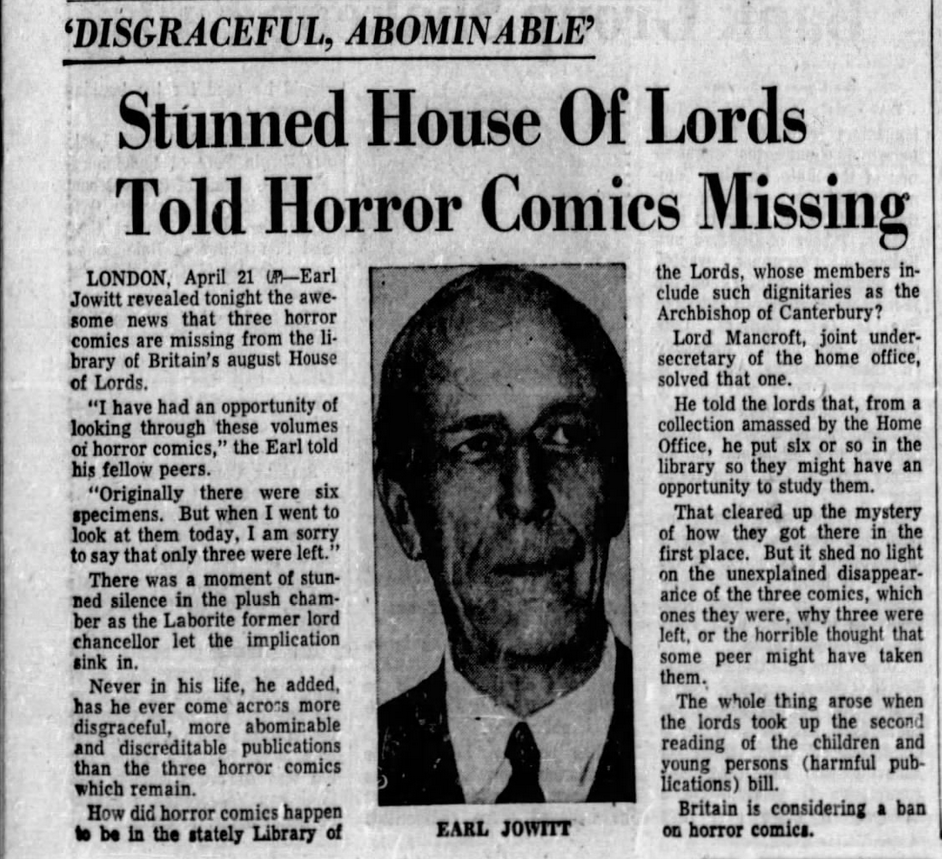
Posted By: Paul - Mon May 02, 2022 -
Comments (1)
Category: Government, Comics, 1950s
Hidden images in comic books
In Seduction of the Innocent, published in 1954, Fredric Wertham accused comic books of corrupting youth. One of the specific ways they did this, he alleged, was by concealing images of naked women in seemingly inoffensive panels. He helpfully reproduced one of these hidden images in his book.The image in question originally appeared in Jungle Comics #98, Feb 1948.

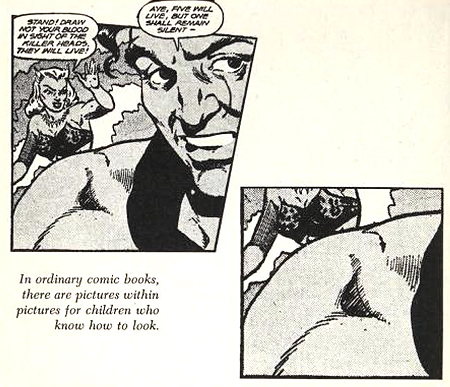
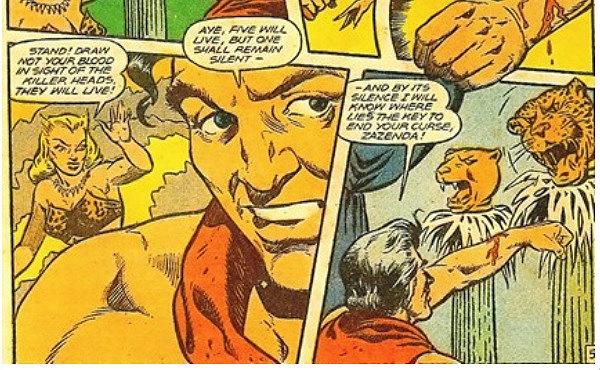
via Legends & Rumors
Posted By: Alex - Mon Apr 25, 2022 -
Comments (4)
Category: Censorship, Bluenoses, Taboos, Prohibitions and Other Cultural No-No’s, Comics
The Wonderland of Doo
The history of newspaper comic strips is replete with many oddities.An excellent blog on the topic, with almost daily posts, is STRIPPER'S GUIDE.
Here's one creation that has received very little attention, based on its scarcity of Google hits. Its creator was Arch Dale.
Each instance featured a big block of text, which I am omitting, save for one sample.
This survey is by no means complete, just a taste.
The strips were also collected in book form.
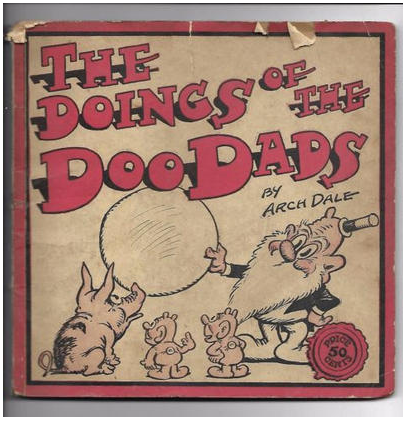
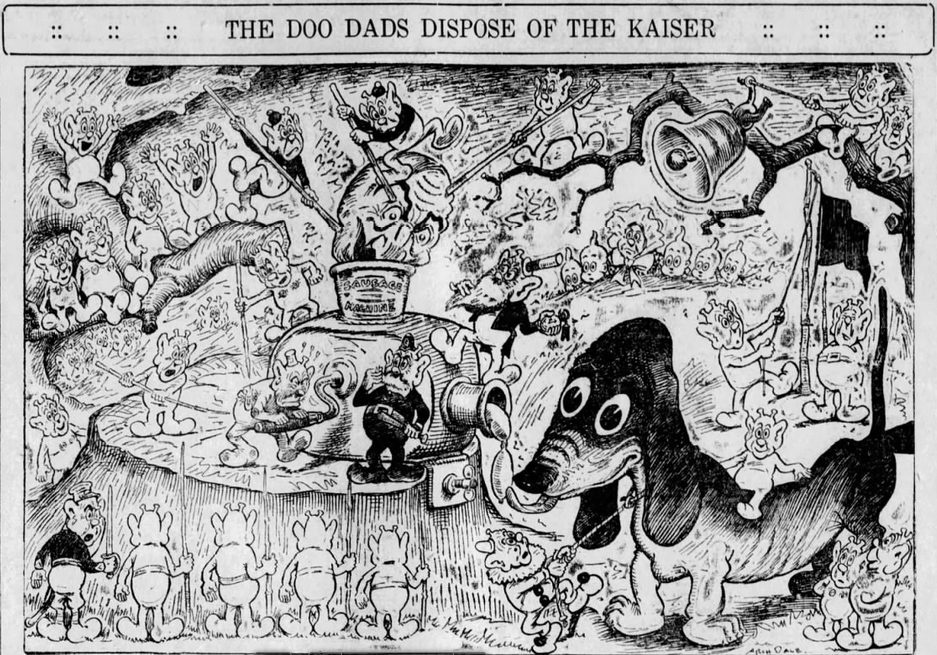
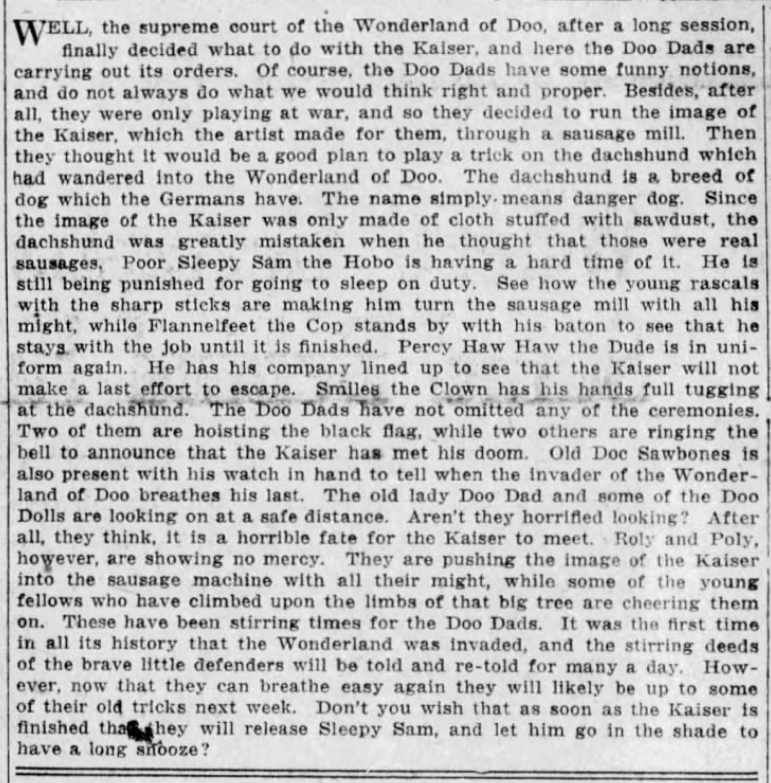
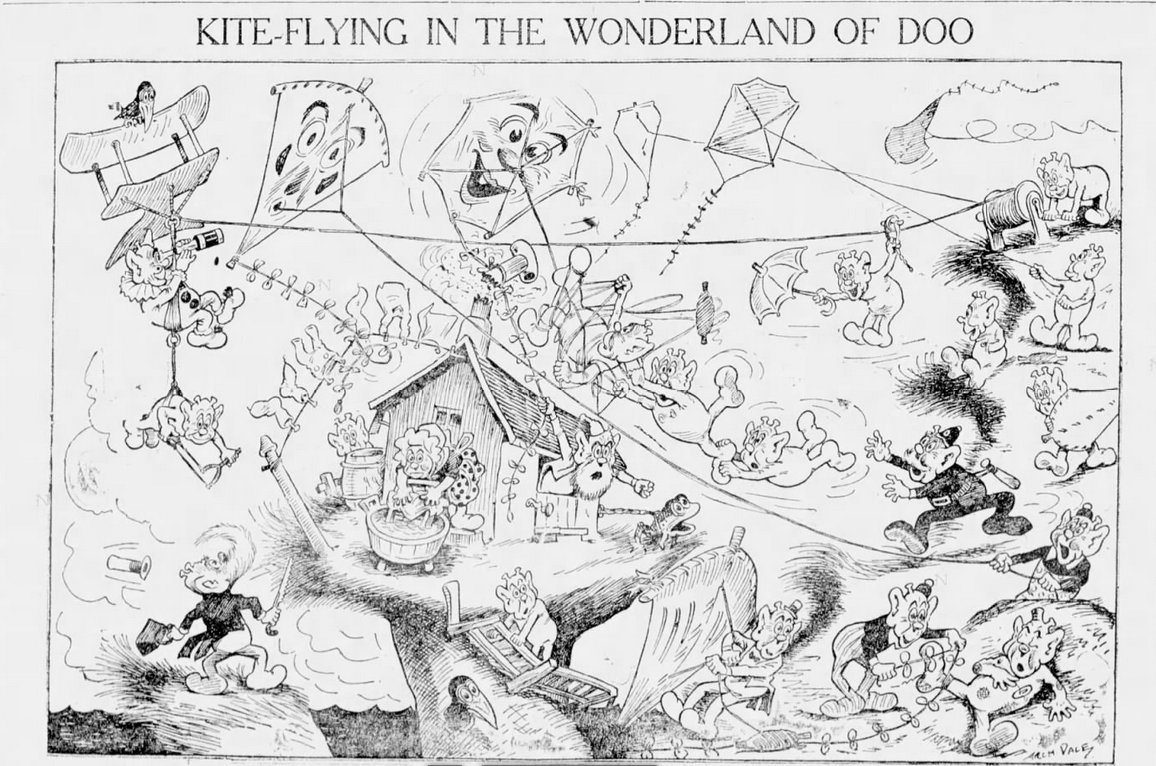
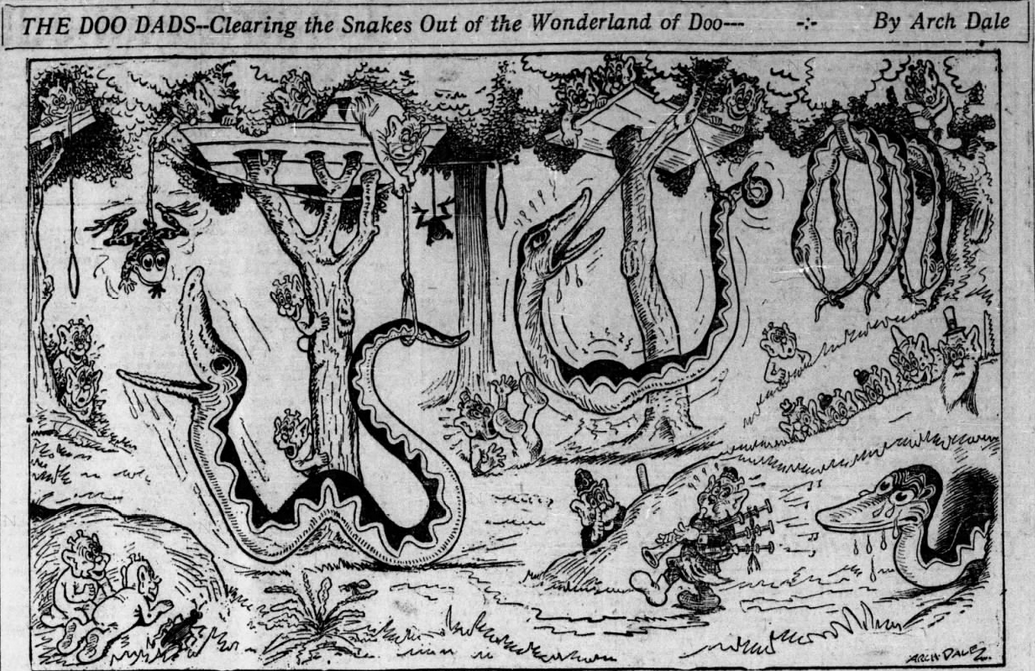
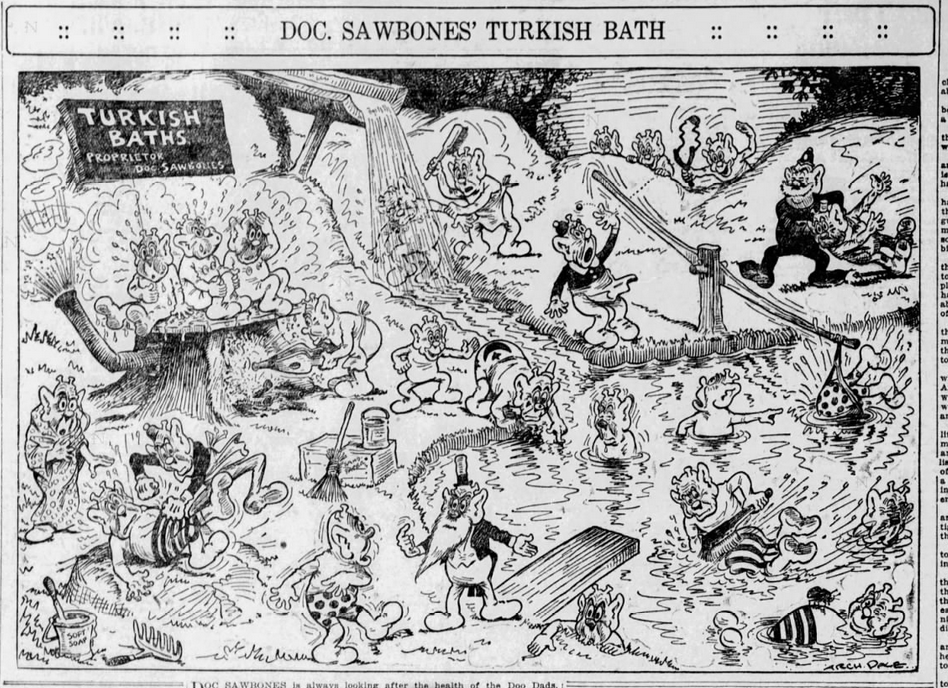
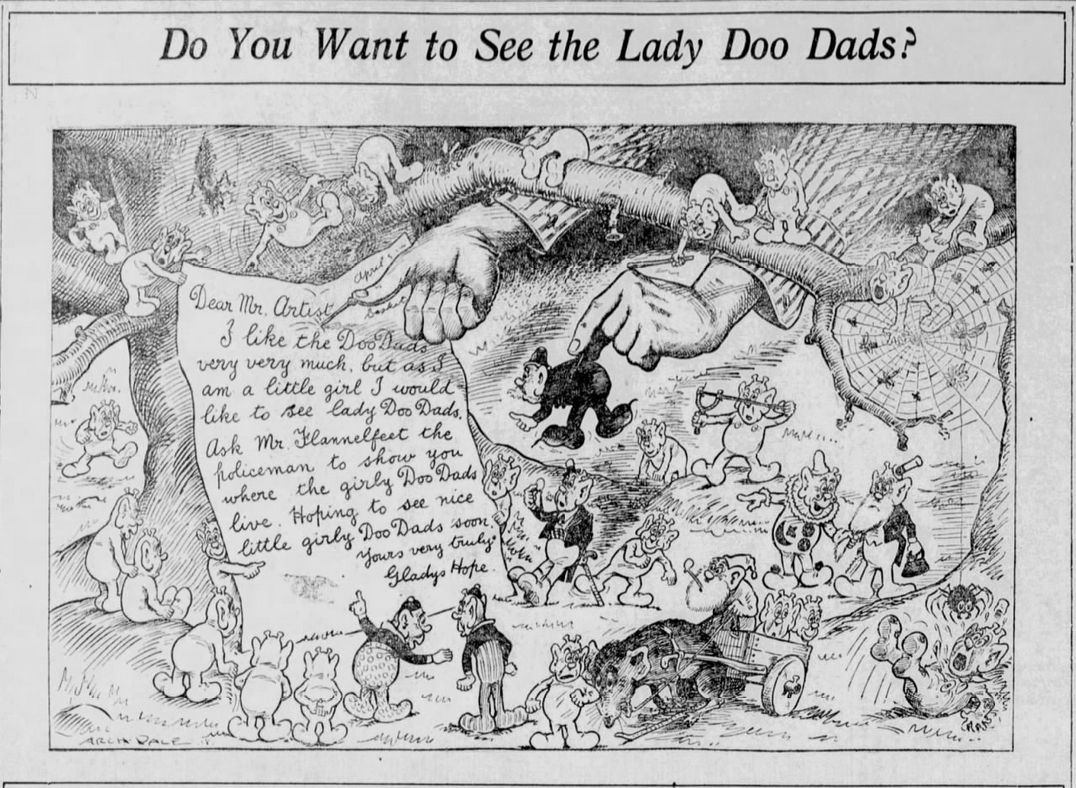
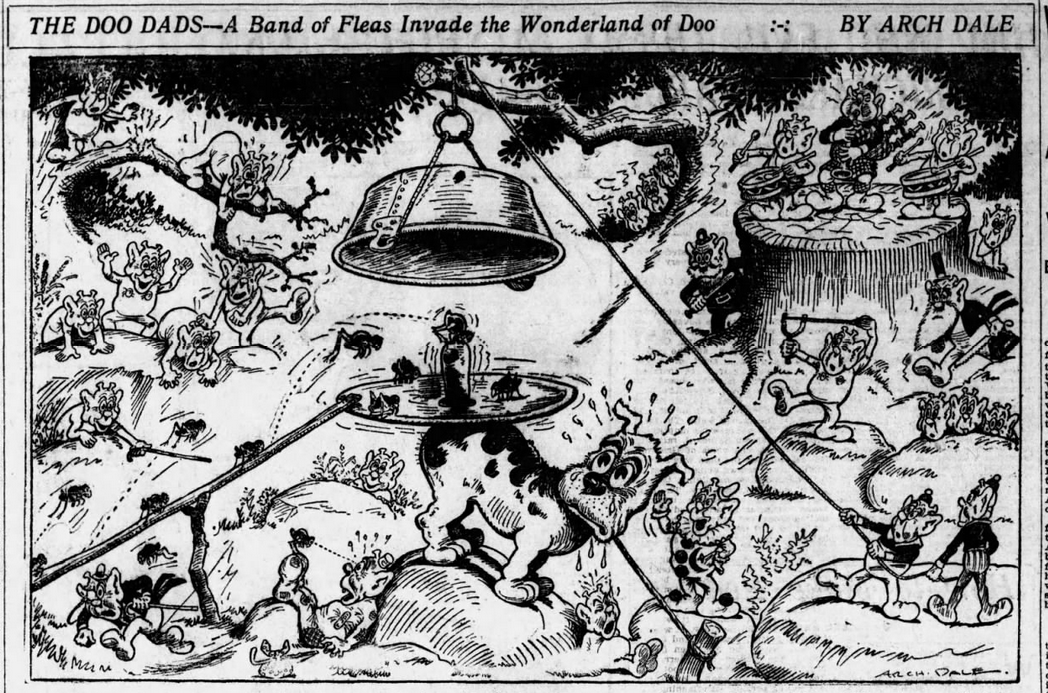
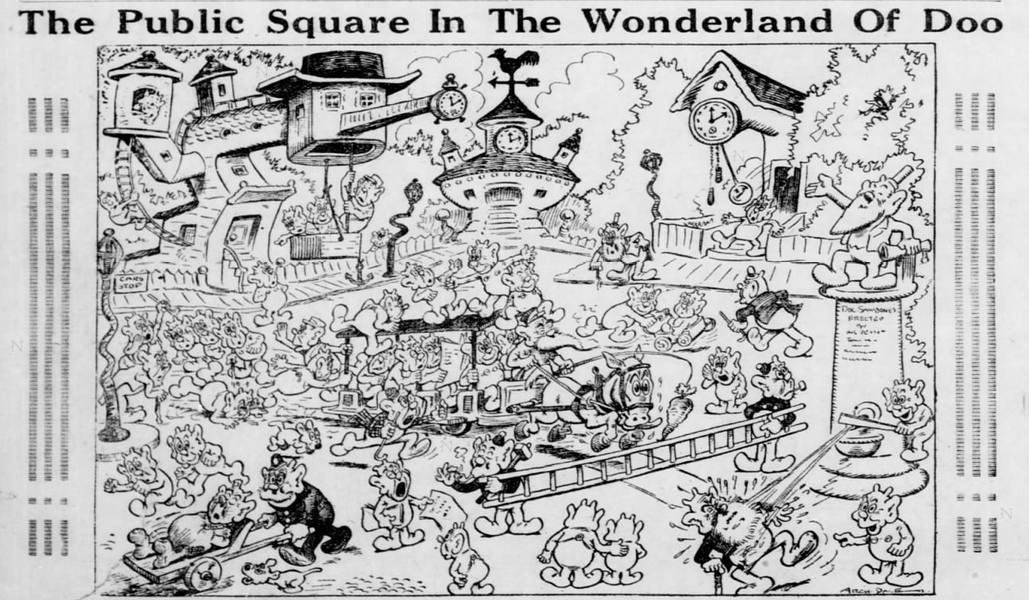
Posted By: Paul - Mon Mar 07, 2022 -
Comments (2)
Category: Anthropomorphism, Newspapers, Comics, Surrealism, Fantasy, Twentieth Century

| Who We Are |
|---|
| Alex Boese Alex is the creator and curator of the Museum of Hoaxes. He's also the author of various weird, non-fiction, science-themed books such as Elephants on Acid and Psychedelic Apes. Paul Di Filippo Paul has been paid to put weird ideas into fictional form for over thirty years, in his career as a noted science fiction writer. He has recently begun blogging on many curious topics with three fellow writers at The Inferior 4+1. Contact Us |




